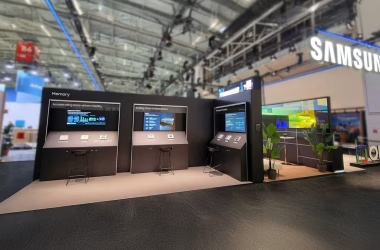You ever stop and think about how AI has snuck into just about every corner of our lives? One minute you’re asking your phone for directions, the next you’re watching a video edited by some smart algorithm that knows your tastes better than your best friend. It’s wild, really.
And here we are in 2025, where the tech landscape feels like it’s evolving faster than we can keep up. If you’re someone who’s dipped a toe into AI—maybe you’ve tinkered with ChatGPT or marveled at those self-driving cars zipping around—then you know the big players aren’t just companies; they’re the architects of tomorrow. I’ve been digging into this, and honestly, it’s fascinating to see how a handful of American brands are leading the charge. These aren’t your run-of-the-mill startups; they’re the heavy hitters, blending massive scale with cutting-edge innovation.
What makes a brand “big” in AI? It’s not just about market cap or hype—though those help. It’s about influence, how they’re weaving AI into everything from business tools to everyday gadgets. Based on recent reports and rankings, I’ve pulled together the top American AI brands that are truly shaping the scene right now.
Nvidia: Fueling the AI Revolution from the Ground Up
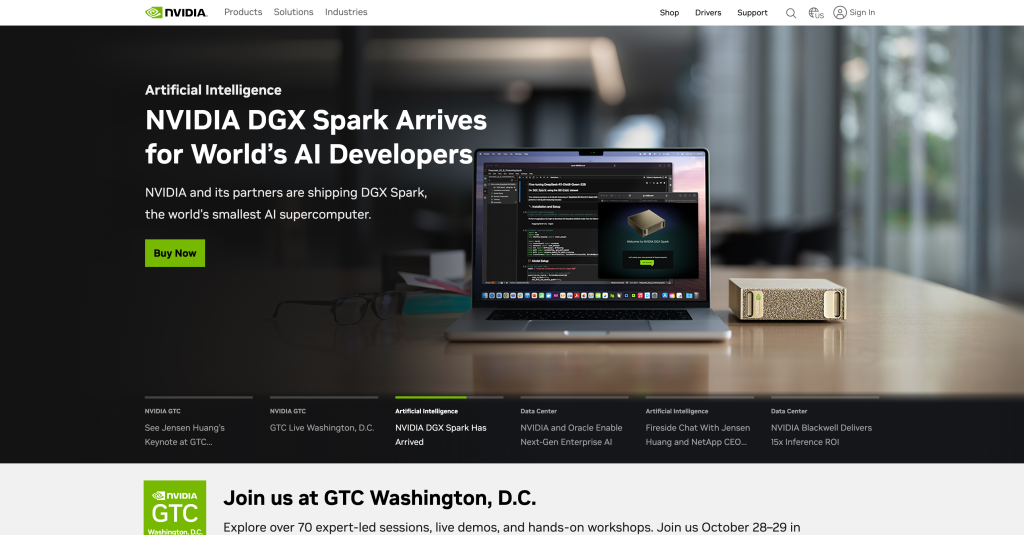
Every time you generate an image with AI or train a model to predict stock trends, there’s a good chance Nvidia’s tech is humming in the background. Founded back in 1993 by Jensen Huang, this company started out making graphics cards for gamers—remember those clunky PCs from the 90s? But they’ve pivoted hard into AI, and boy, has it paid off. Today, Nvidia commands about 92% of the data center GPU market, supplying the muscle for everything from cloud computing to advanced research. Their H100 processors and the newer Blackwell chips are like the Ferraris of AI hardware, speeding up tasks that used to take days into mere hours.
What really gets me is how Nvidia’s CUDA platform has locked in developers. It’s this software ecosystem that’s tough to leave once you’re in, kind of like getting hooked on a favorite coffee shop—you just don’t switch. They’ve got over 36,000 employees pushing boundaries, and under Huang’s watch, the company’s expanded into DGX systems for enterprises and even Omniverse for virtual worlds. Sure, there’s talk of competition from custom chips by big cloud folks, but Nvidia’s still the go-to. If you’re into gaming or design, you’ve probably felt their impact without realizing it. And with AI popping up in healthcare diagnostics or autonomous vehicles, Nvidia’s role feels almost foundational. Makes you wonder: what if we didn’t have this kind of power? Would AI still be this accessible?
Microsoft: Bringing AI to the Office and Beyond
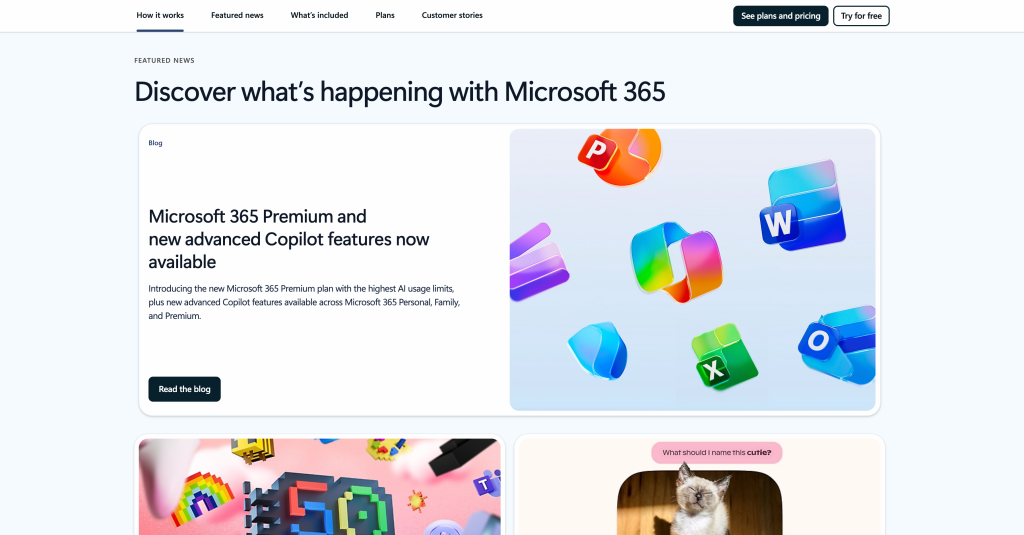
Shifting gears a bit, let’s talk Microsoft. You know, the folks who’ve been around since 1975, when Bill Gates and Paul Allen kicked things off in a garage. Fast-forward to now, and under Satya Nadella, they’ve become the enterprise AI kingpin. Their massive investment in OpenAI—billions poured in—has supercharged Azure, their cloud platform, making it a one-stop shop for businesses dipping into AI.
Here’s the thing: Microsoft’s Copilot tools are changing how we work. Imagine firing up Word or Excel, and there’s an AI buddy suggesting edits or crunching numbers on the fly. It’s not just gimmicky; it’s practical, with AI revenue topping $13 billion a year and plans for $80 billion more in data centers this year alone. With 228,000 employees worldwide, they’re integrating AI across the board, from productivity apps to security features.
I remember when email was just plain text; now it’s smart enough to flag phishing attempts before you click. For anyone in a corporate gig, Microsoft’s making AI feel less like sci-fi and more like a helpful colleague. But hey, they’re not without rivals—Google and Amazon are nipping at their heels. Still, Nadella’s vision has turned Microsoft into a powerhouse that’s hard to ignore. Ever used Bing’s AI search? That’s them too, quietly revolutionizing how we find info online.
Apple: Privacy-First AI in Your Pocket
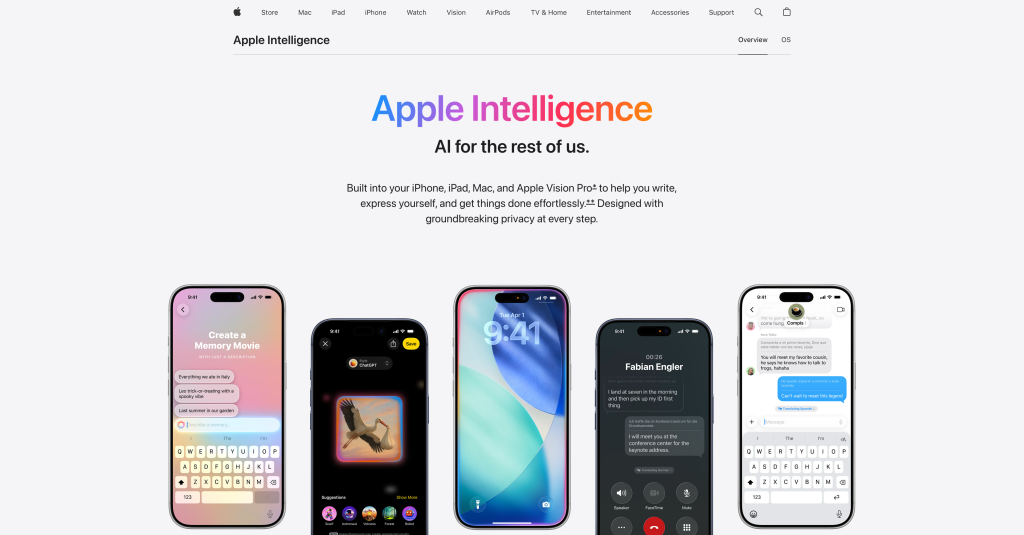
Apple’s always marched to its own beat, hasn’t it? Started in 1976 by Steve Jobs, Steve Wozniak, and Ronald Wayne, they’ve built an empire on sleek design and user trust. In AI, they’re a bit of a late bloomer, but when they show up, they make waves. Apple Intelligence, rolled out across their devices, focuses on on-device processing—meaning your data stays put, not floating in some cloud.
Their Neural Engine in M-series chips handles complex tasks like photo editing or voice recognition without batting an eye. With over 1.5 billion active devices, Apple’s reach is massive; they’re bringing AI to the masses in a way that’s intuitive and secure. Tim Cook’s crew of 164,000 keeps pushing privacy as a selling point, which resonates in a world full of data breaches. Think about it: your iPhone suggesting shortcuts based on habits, all without sending info back to servers. It’s clever, and for everyday users, it demystifies AI.
Of course, they’re not dominating enterprise like Microsoft, but in consumer tech, Apple’s setting standards. Sometimes I catch myself relying on Siri more than I admit—it’s those little conveniences that add up. As AI gets more personal, Apple’s approach might just win over skeptics who worry about Big Brother watching.
Alphabet (Google): The Research Giant Redefining Search
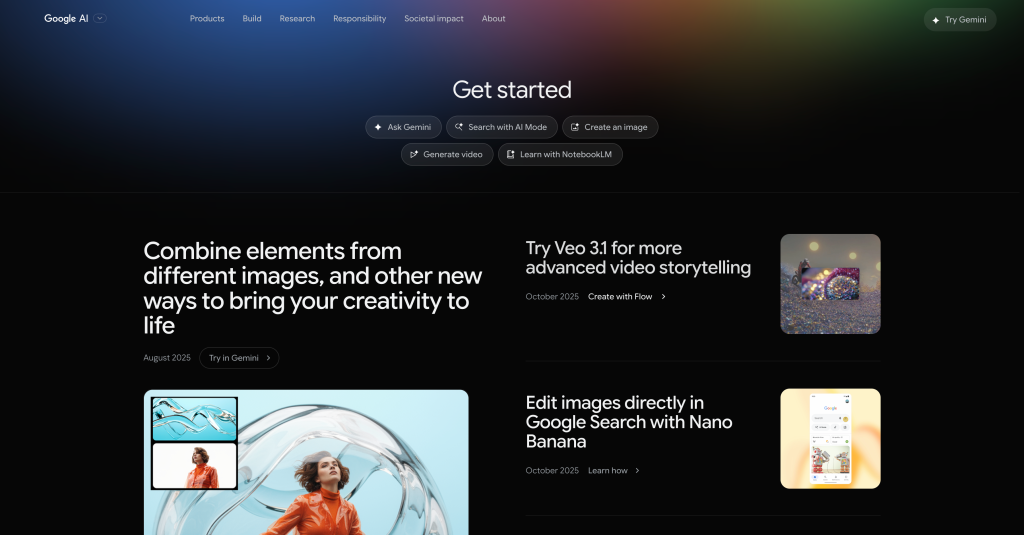
Google, or Alphabet as the parent company’s known since 2015, has AI in its DNA. Larry Page and Sergey Brin founded it in 1998 as a search engine, but now, with DeepMind under their wing, they’re AI trailblazers. Sundar Pichai steers the ship with 183,000 employees, and their Gemini platform touches over 1.5 billion users monthly through smarter search.
What stands out is how they’ve baked AI into daily life—Workspace tools generating billions of assists, Vertex AI for devs building custom models. It’s that data edge from search that gives them an unfair advantage, honestly. But it’s not all smooth; antitrust scrutiny looms, questioning their dominance. Still, if you’ve ever gotten an AI overview in search results, that’s Google making info faster to grab.
They remind me of that friend who’s always one step ahead, innovating in areas like healthcare with AI spotting diseases early. For AI enthusiasts, Google’s open research papers are goldmines. Yet, as they grow, the challenge is balancing innovation with ethics—something Pichai often highlights. Where would we be without their maps or email smarts? It’s a tangled web, but Google’s at the center.
OpenAI: The Trailblazers of Generative Magic
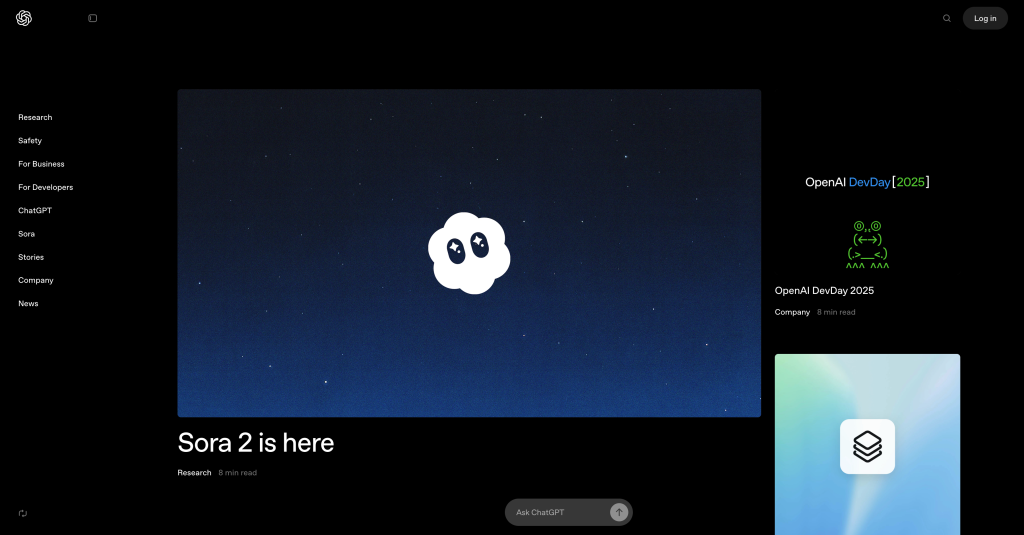
OpenAI burst onto the scene in 2015, founded by a group including Sam Altman and Elon Musk (though he split later). What began as a non-profit lab has morphed into a behemoth, with ChatGPT alone boasting 500 million weekly users. Their GPT models are everywhere, powering apps from writing assistants to code generators.
With 3,500 employees, they’re chasing artificial general intelligence—AI that thinks like us. DALL-E for images, Whisper for speech—it’s a suite that’s democratized creativity. Partnerships like the one with Microsoft have fueled growth, but controversies around “black box” models and ethics keep things spicy. You know what? Playing with ChatGPT feels like chatting with a super-smart buddy; it’s addictive. For businesses, their API opens doors to custom AI without starting from scratch. But as they push boundaries, questions arise: How do we ensure this power doesn’t backfire? OpenAI’s journey shows AI’s potential and pitfalls, making them a brand that’s impossible to overlook in conversations about the future.
Meta Platforms: Open-Sourcing AI for the Masses
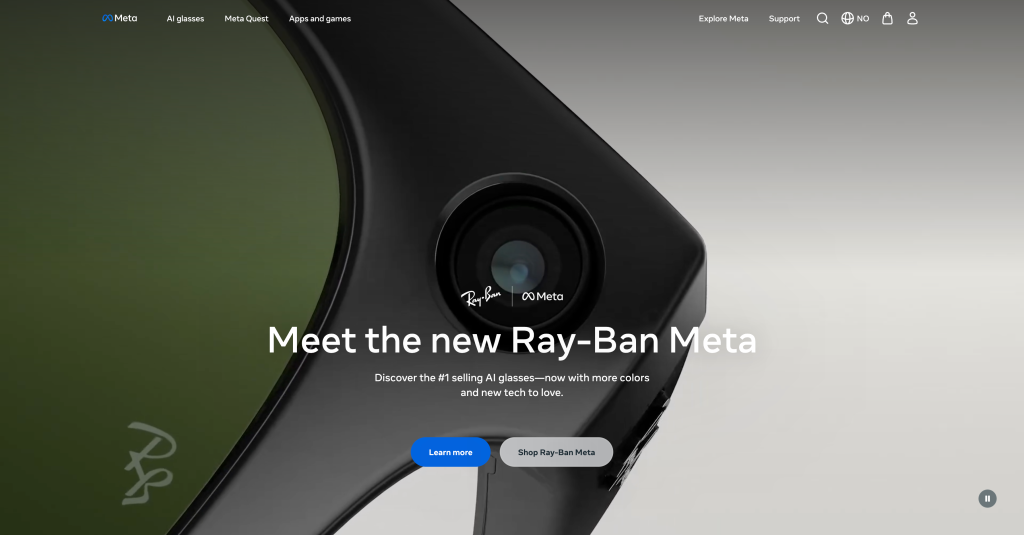
Mark Zuckerberg’s Meta, born as Facebook in 2004, has evolved into an AI force with over 74,000 employees. Their Llama models are open-source gems, letting anyone tinker and build, unlike closed systems from rivals. Serving 3.4 billion users across apps like Instagram and WhatsApp, Meta’s AI integrations make social media smarter—think personalized feeds or chatbots handling queries.
Reality Labs dives into AR/VR with AI, envisioning metaverses where interactions feel real. But they’ve faced fines for privacy slips, reminding us tech isn’t perfect. Here’s a tangent: Remember when social media was just posting photos? Now AI suggests edits or even generates content. For creators, Meta’s tools level the playing field. Zuckerberg’s push for openness fosters a developer community, challenging the status quo. It’s refreshing in a field often guarded. As AI blurs lines between real and virtual, Meta’s betting big—will it pay off? Their story’s a mix of ambition and caution, relatable for anyone navigating digital life.
Anthropic: Ethical AI with Enterprise Muscle
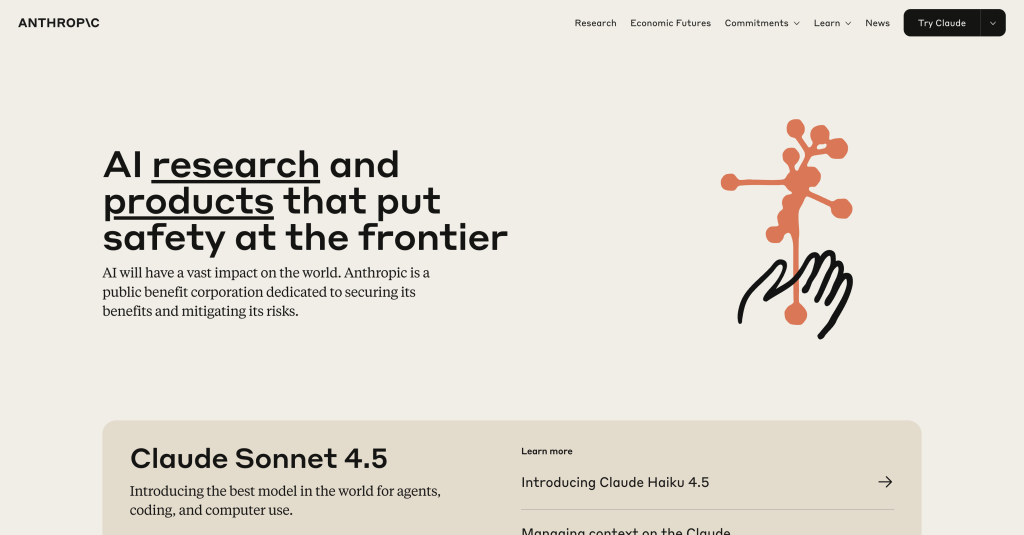
Anthropic, launched in 2021 by Dario Amodei and team, stands out for its safety-first stance. Their Claude models have hit $3 billion in annual revenue, growing 1,000% year-over-year. With 1,035 employees, they’re partnering with AWS and Palantir, focusing on regulated sectors like government.
Constitutional AI sets rules for harmless tech, influencing global standards. It’s like having a moral compass built in. For businesses wary of AI risks, Anthropic’s approach builds trust.
I’ve seen how Claude handles complex queries better than some—it’s precise, avoiding hallucinations. But they’re young, facing stiff competition. In a way, they represent the thoughtful side of AI, asking: Can we innovate without harm? Their rapid rise shows demand for responsible tech, especially in America where regulations are heating up.
Amazon: The Infrastructure Backbone of AI
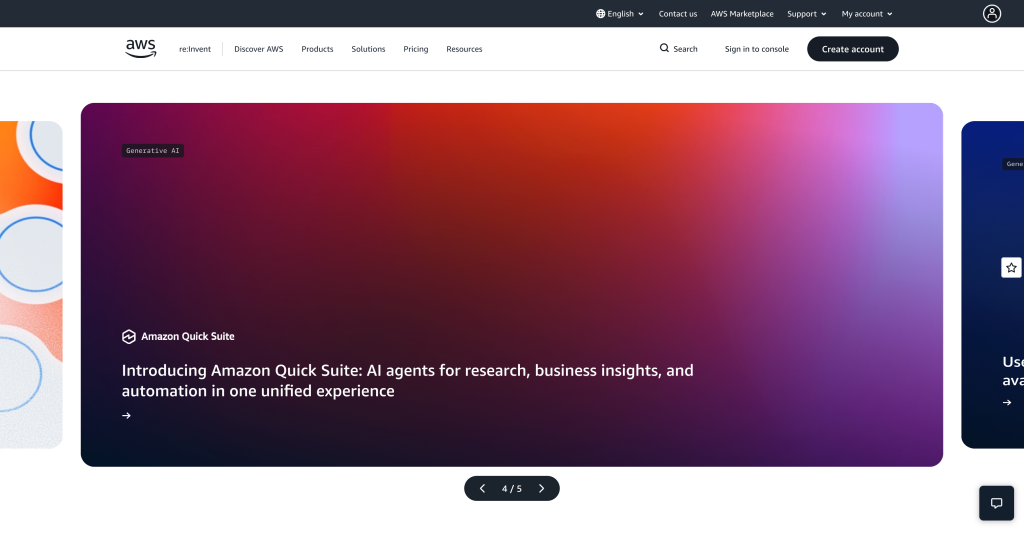
Amazon, Jeff Bezos’s 1994 creation, now led by Andy Jassy with 1.5 million employees, rules through AWS—the cloud giant powering countless AI ventures. Their Nova models and Bedrock service offer tools for building AI, with triple-digit growth in related revenues.
From e-commerce recommendations to logistics optimization, Amazon’s AI touches daily life. Ever get a package faster than expected? That’s their predictive systems at work. But as a behemoth, they face scrutiny on labor and monopoly issues. For devs, AWS makes scaling AI feasible without massive upfront costs. It’s practical magic. Tying back, Amazon’s ecosystem shows how AI amplifies existing strengths, making giants even mightier. What if smaller players can’t keep up? It’s a valid worry in this fast-paced world.
Palantir Technologies: AI for Decisions That Matter
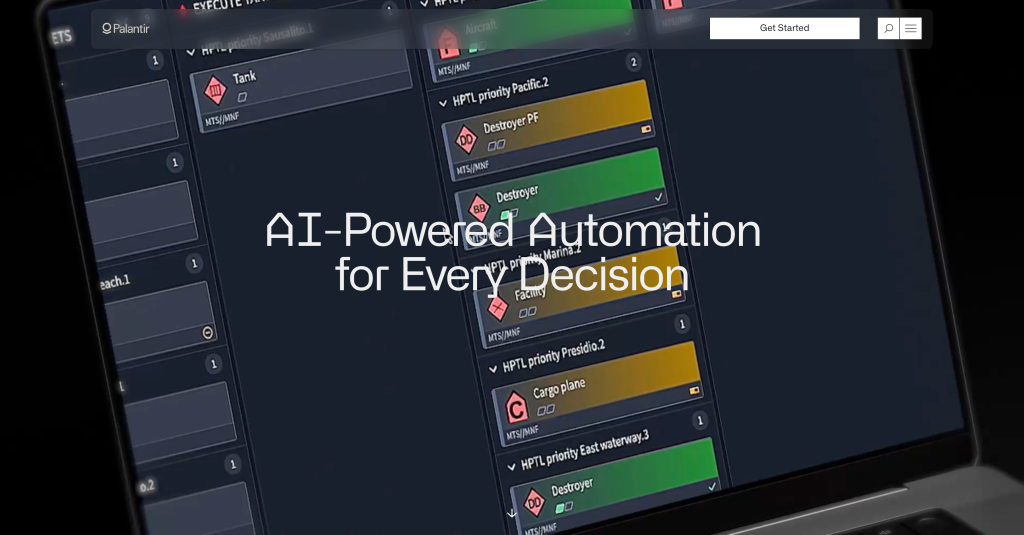
Palantir, co-founded in 2003 by Peter Thiel and Alex Karp, specializes in data-driven AI for tough spots like defense and intelligence. With 3,700 employees, their platform’s grown 36%, earning S&P 500 status.
Gotham and Apollo handle massive datasets, predicting disruptions with scary accuracy. Used by NASA and governments, it’s serious stuff. But privacy concerns shadow them, as reports highlight potential overreach. For industries needing precision, Palantir’s invaluable. Think of it as the AI detective solving puzzles humans miss. Their niche focus sets them apart, proving AI’s not just consumer-facing—it’s strategic too.
Databricks: Uniting Data and AI Seamlessly
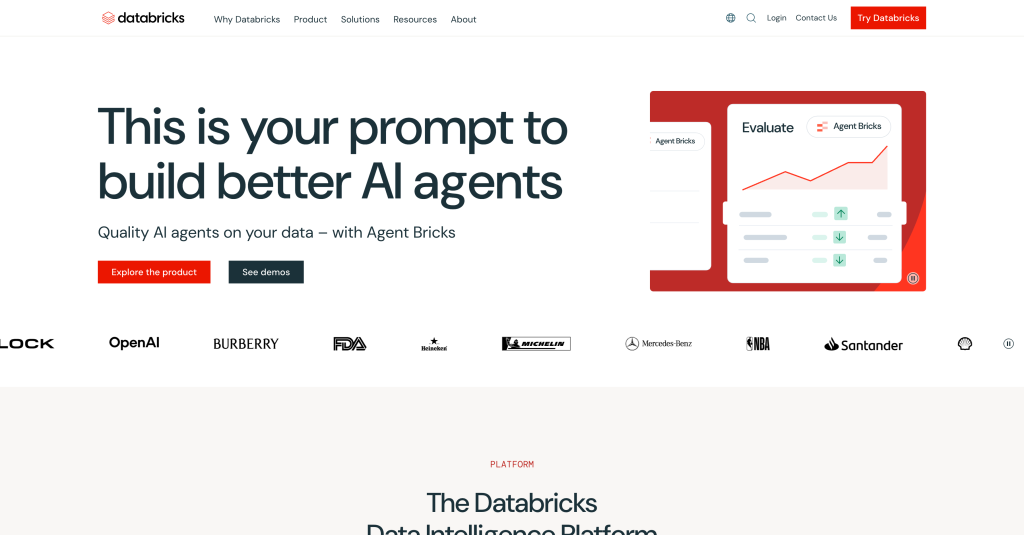
Wrapping our list, Databricks, started in 2013 by Ali Ghodsi, has skyrocketed with 60% growth, serving 10,000 customers. Their lakehouse platform merges data analytics with AI, making deployment straightforward.
With 11,000 employees, Mosaic AI enables custom models without hassle. It’s like bridging old data silos with new AI smarts. For enterprises, this means faster insights—think marketing campaigns tuned in real-time. Partnerships with cloud giants amplify reach. Databricks embodies the data-AI fusion, essential as info explodes. Ever struggled with spreadsheets? They make that obsolete.
Looking ahead
Whew, that’s a lot to take in, right? These brands aren’t just big; they’re redefining possibilities. From hardware to ethics, they’re covering the spectrum, influencing everything from your morning routine to global policies. As the AI landscape unfolds, with trends like multimodal AI and tighter regs, these companies will likely drive the narrative. But remember, AI’s a tool—we decide how to wield it. Exciting times ahead; stay curious, folks.







